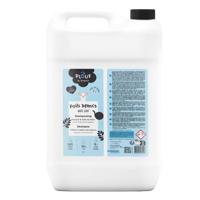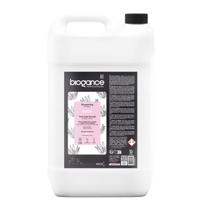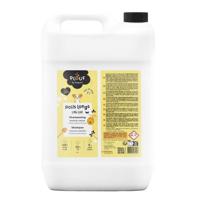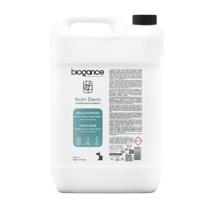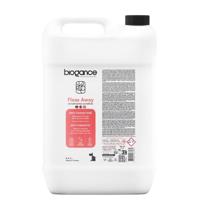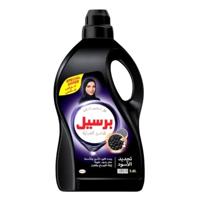
Engine Oil
About Engine Oil
Cars don’t have blood like humans and animals. But they have engine oil. If you are a car lover, you know how vital it is to keep the oil in good shape and form. The best way to ensure the longevity of your engine is to change the oil on time.
The engine and the drivetrain are the most expensive components of a car. Seeing the engine warning light is the worst nightmare for car owners. But if you are careful to follow the maintenance schedule, there is not much you need to worry about. That’s why you shouldn’t be stingy when it comes to maintaining the engine oil in good condition. Those little expenses at regular intervals can save you from bank-breaking costs of engine repairs. But before you start shopping for engine oil, knowing a little more about them can really help. This article will tell you about the different types of them and will give you some tips to follow when you are shopping.
Different types of engine oil
The engine is basically a lot of metal rubbing against each other. Usually, when this happens, they don’t last very long before they wear off. Then why doesn’t the same happen to car engines? Because there is engine oil that prevents them from heating up. That’s only one function of them. There is a myriad of other functions for this wonder liquid in a car. That also means you have to be careful while choosing one for your car. Here are the different types of engine oil that you will find. In this article, you will also find some wonderful tips that you can follow while shopping for them online.
Fully synthetic
These oils are carefully formulated by licensed chemists in laboratories. Depending on the formula of the oil, it gets three different types of ratings. OW-30 provides better fuel savings. For better engine performance and power, there are OW-40 oils. 5W-40 synthetic oil is a bit more advanced than that. They protect the engine from wear and tear while also removing the build-up of residue. They are ideal for colder climates where it is difficult to start the engine and get it going. Fully synthetic oils are especially good in cold climates where traditional oil fails. And because they do not decompose as fast, you can rack in a lot more miles between the fuel changes.
Conventional oil
This has found its way into cars more than a century ago. It was in 1908 when conventional oil was first used in car engines. Conventional oils are usually the byproducts of petroleum processing. Based on their characteristics, they get two different ratings. 10W-40 provides basic protection to the engine, but they have a decently long life. 15W-40 is cheaper, but you won’t get a lot of time between the oil changes with it. The major downside of a conventional oil is its inability to withstand extremely cold climates. But if you are living in a place that does not freeze up during winters and only requires the basic performance out of the engine, conventional oil is good enough.
Synthetic blend
Some people do not like to go too much on either side. Synthetic blend oil is for them. With it, you get a balance between the high price of fully synthetic oils and the basic features of conventional oil. For that reason, synthetic blends tend to be very popular among the common folks. And like you have already guessed; it is a blend of synthetic oil and conventional oil. The downside is that in extremely cold conditions, it will take you a full ten minutes to get the engine ready to run. But they are still a long way ahead of conventional oil. The frequency of oil changes is also right in the middle of that of conventional oil and synthetic oil.
Premium conventional oil
Conventional oil is more than a hundred years old. Technology has come a long way since then. These days you will find new and improved formulas of conventional oil that can actually withstand lower temperature. In fact, most lower-end light vehicles use premium conventional oil because of their low price and decent performance. On average, you need an oil change once in four thousand miles or twice in a year, whichever one is lower. Cars that have an oil change indicator on the dashboard will give you warning lights when you exceed this range without an oil change.
Tips on how to buy Engine Oil
There are so many engine oil types and brands. The hardest part is picking the right one for your car. The last thing you want to do to your car is to use the wrong type of engine oil. Although it may sound like rocket science when you see the technical terms, if you know what to look for, it is not that difficult. Following these tips will help you find the right engine oil for your car.
- The viscosity – Every car engine has a range of temperature that it normally operates. Depending on this temperature, you should choose the viscosity of the engine oil. If you are not sure about the operating temperature of your car engine, you can always find it out from the vehicle owner’s manual.
- The type of oil – There are a few different types of engine oil that you can choose from. While there are clear advantages to synthetic engine oil over all others, the high price can be a dealbreaker for many people. But if you’re driving normally in a mid-level car, you don’t need to use expensive oil either. So, you have to make the call depending on your budget.
- Choose the additives – You can change some of the characteristics of the engine oil using additives. The most common additives people use are viscosity index improvers, detergents, and dispersants, anti-wear agents, friction modifiers, and pour-point depressants. By adding these to basic engine oil, you can tweak its performance and get the most out of it.
- The filter – Last but not least, is the oil filter. While it is possible to alter the engine performance by using a different filter than the OEM one, it is better to use the stock filter unless you are specifically tuning your engine. If you are using larger oil filters, you will need more oil in the reserve tank and vice versa.
Finally, proper maintenance and oil changes at the right times is as important as using the right type of oil. If you are new to the realm of cars and car engines, you might want to seek advice from a professional to make sure that you are doing it right. Also, don’t forget to check out other amazing products in the car supplies category. Our retail search engine features more than 500 shops and brands offering affordable car care products. Among the ones you can choose from include Castrol, Total, Diesel, Shell, Liqui Moly, Mobil, Motul, Yamalube, and Valvoline.
Question & Answer
Are diesel engine oil additives necessary?
The truth is most engine oil that you find in the market will already have the basic additives in it. So, if all you want is to make your car run and if you do change the oil on time, you need not spend the extra money on oil additives. But additives can give a significant boost to your car’s performance and will also improve the longevity of the engine. If high performance and longer intervals between the services is important for you, then the money you spend on additives is worth every penny. Another area where additives shine is in fixing the old and clogged up engines.
How should engine oil look?
Engine oil is translucent with a light tint. Over time, it gets darker and thicker. So, to check if it is time for you to get an oil change, you can do a basic dipstick test. The darker the dipstick is, the closer you are to your next oil change schedule. And if the dipstick is black, then it is time for you to change the oil. If the oil has turned brown or milky, then that is a bad sign. Usually, this happens when the coolant leaks into the crankcase of the engine. You can also use the smell of the engine oil to check how many more miles you have before the oil changes.
Is car engine oil flammable?
Scientists use the flashpoint of a substance to determine how flammable it is. Engine oil is hydrocarbons similar to petrol and diesel but a lot heavier than them. High density means the molecular forces between the particles are strong. As a result, the flash point of these substances will be higher. Generally, the flash point of engine oil is above 150 degree Celsius. It varies depending on the type of the oil but above 150 is a good ballpark. Physicists classify the substances that have their flash point above 150 as combustibles. Therefore, the answer is no; engine oil is not flammable.


